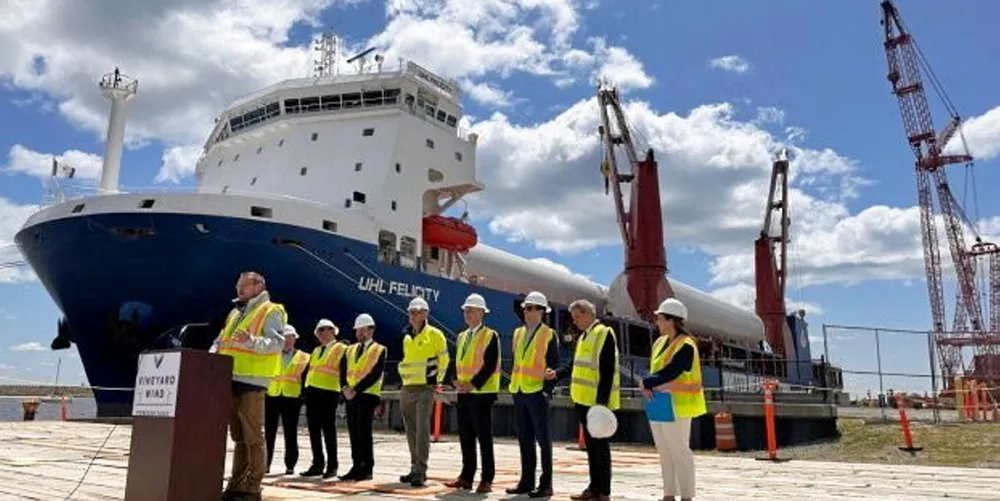Vineyard Wind work resumes with agreement to end longshoremen's strike
Longshoremen's association was not party to landmark project labour agreement that guarantees 500 different union jobs for the first US commercial scale wind farm

Vineyard Wind announced an agreement with a longshoremen’s union whose strike over the last week had delayed unloading of the first shipment of turbine components for the nation's first commercial scale offshore wind project to resume.
“We’ve made an arrangement with the local stevedoring company to ensure that local workers will fill the jobs that are necessary to build this first-in-the-nation project. We’re excited to get started again, and look forward to future milestones in the coming months,” Moeller added.
The project entered into a landmark PLA in 2021 with the Southeastern Massachusetts Building Trades Council guaranteeing some 500 union jobs, but due to federal law, the ILA was not party to it.
Consequently, Vineyard Wind’s PLA assigned portside loading and unloading to building trades members instead of longshoremen.
Only 12 ILA members held part-time positions on the Vineyard Wind project out of a total of 300 union workers currently on the job now.
“That's the thing that we were looking for the most,” Rose said. “We train our guys for the next project, so when the new Mayflower Wind comes, we're ready now, well trained on all this all this stuff.”
The Shell-Ocean Winds-owned, 1.2GW Southcoast Wind, formerly known as Mayflower, will be marshalled out of New Bedford following Vineyard.
Crucial to the successful outcome for the ILA was the honouring of the strike by the other unions on the site. “If that didn’t happen, and they started to discharge, we would’ve lost,” he said.
DEI “lip service”?
Rose criticised the offshore wind industry for only “paying lip service” to its diversity, equity, and inclusion (DEI) goals.
“My local is 90% Cape Verdean people of colour and 100% people that live in the community, but it's still a small fraction of the workers," he said.
Developers are “supposed to hire people from the community, people of colour. Why aren't people putting pressure on subcontractors to do the same thing, hire local, hire minorities? Don't put it all on the ILA.”
Rose described negotiations with the developer, owned by a joint venture of Copenhagen Infrastructure Partners and Iberdrola-controlled Avangrid, as amicable, but sees similar issues with other projects as the industry ramps.
“This is not done,” he said. “Local city officials, local community activists. They all need to continue this fight. This is just the beginning.”